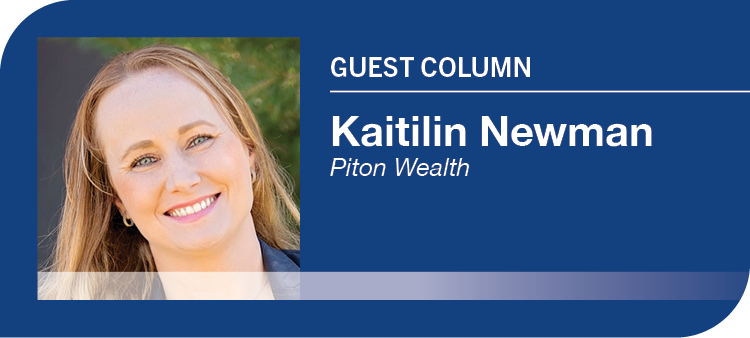
Home » Ways to make charitable gifts have more of an impact
Ways to make charitable gifts have more of an impact

November 21, 2023
Charitable giving brings fulfillment and joy, both for those whose lives benefit from the donation and for the donors dedicated to that generosity, as our team has witnessed countless times.
As financial professionals, we are also dedicated to making financial generosity be as impactful as possible.
The impacts of charitable donations also regularly run at cross purposes with taxes (since we rarely find donors eager to contribute to the IRS).
Following the rise in the standard deduction for federal income tax in 2017, far fewer taxpayers have itemized deductions in general, including itemizing charitable distributions. There are other ways to maximize the financial impact of charitable donations, however. I want to spotlight one tool in particular, the qualified charitable distribution (QCD).
What is a QCD?
QCD refers to a charitable donation made from an individual retirement account (IRA). Because funds taken from an IRA (called “distributions”) count as income for the retiree, a QCD’s status as a charitable donation can yield tax benefits. Only IRA owners aged 70 ½ or older are eligible to make QCDs, but there are distinct opportunities and benefits to them.
Potential benefits
There are at least two tax benefits that IRA owners eligible to make QCDs should explore.
One benefit has to do with required minimum distributions (RMDs), the annual amount that IRA owners must take out or face tax penalties.
The IRS imposes this requirement to ensure that they receive taxes in a timely manner. QCDs can count toward this distribution, up to a limit of $100,000 ($200,000 for eligible couples). Thus, making a QCD can help meet the IRS requirement in a tax-efficient way.
Another potential benefit involves Medicare charges. Depending on income (which can include distributions from an IRA), a Medicare recipient might be charged Medicare income-related monthly adjustment amount (known as IRMAA Medicare charges), based on adjusted gross income (AGI) levels. A QCD does not count toward AGI, so a taxpayer’s AGI could be lowered and result in lower Medicare costs.
Timing and tracking matter
So what’s the catch? The timing and reporting of the QCDs can make the difference between receiving the financial benefits or not. In the case of RMDs, the IRS automatically reckons the first distributions of a tax year as counting toward RMDs, so the later a QCD in the year, the less it might count toward the total RMD. In the case of AGI, the advantage is particular to a QCD. A donation of the same amount paid from a different account, for example, might not reduce AGI at all.
Prepare and plan
If the opportunities and options for a QCD resonate with you or a loved one, I encourage you to work with appropriate professionals who can determine the best actions for your specific financial situation. Especially because the timing and reporting of QCDs shape the financial consequences, a knowledgeable professional can likewise make sure the process yields the best results for you and the charitable cause.
Do prepare and plan but bring both passion and planning to bear on your contributions to charitable causes. Where you have a passion to donate your time by volunteering for an organization, that is a good sign that you trust that a financial contribution would likewise lead to the results that you want. Both pragmatically and emotionally, it also makes a difference when you personally know one or more people who serve the organization administratively or volunteer their time in other ways. Knowing people whose lives have benefited directly from an organization’s work is another thoughtful and generous way to explore where to direct your generous instincts.
No matter what organizations you are considering, though, do some homework and research for your planning. It is always a good idea to include a search in two online resources.
At the IRS, make sure that the organization legally a tax-exempt organization (irs.gov/charities-non-profits/tax-exempt-organization-search).
The Charity Navigator (charitynavigator.org) also hosts a range of good information about charitable organizations, especially so that you can get a sense of how much of your donations goes directly to the cause and beware of organizations where administrative overhead constitutes too much of their activity.
Kaitilin Newman is a chartered retirement planning counselor and wealth advisor at Piton Wealth in Kennewick, as well as owner of Wine Social in Richland.
Local News Charitable Giving & Nonprofits Nonprofits Opinion
KEYWORDS november 2023





